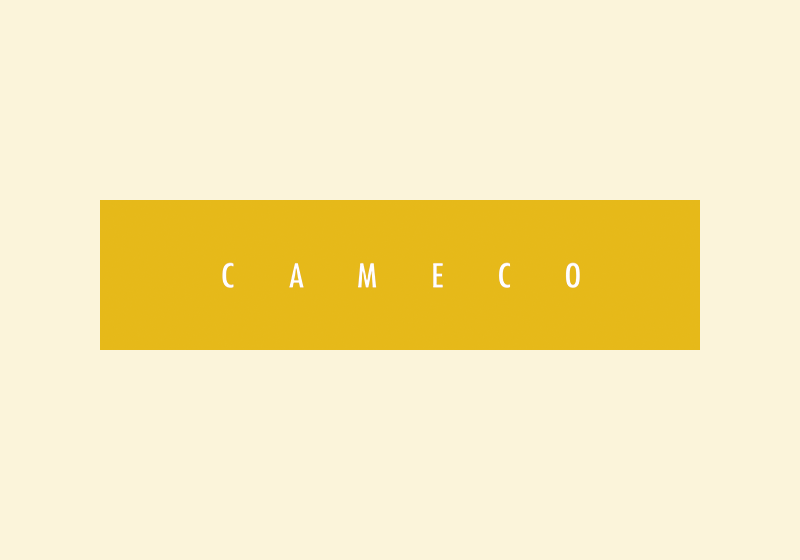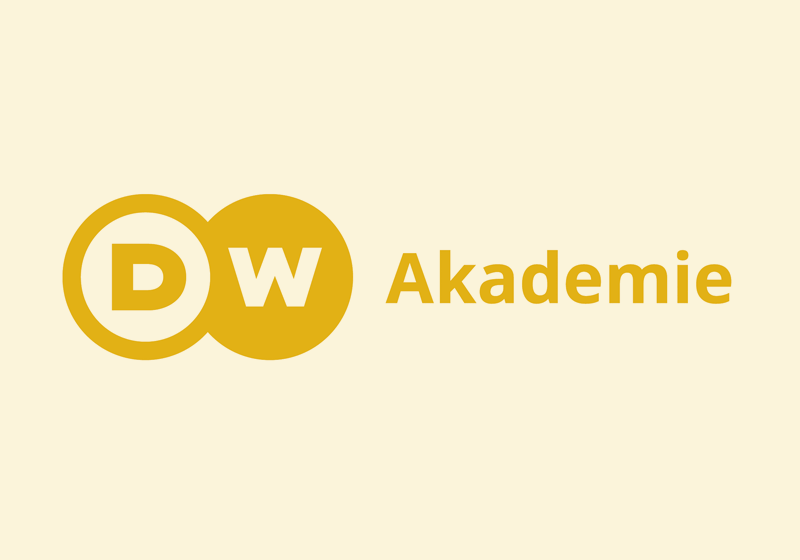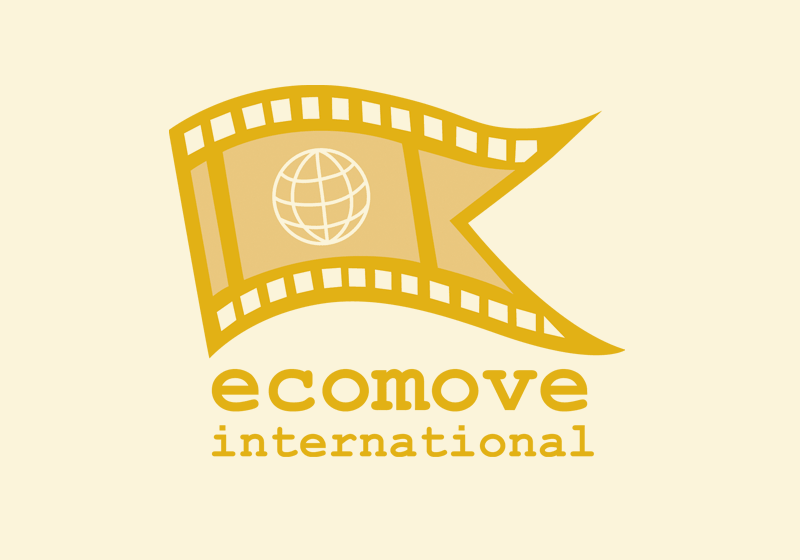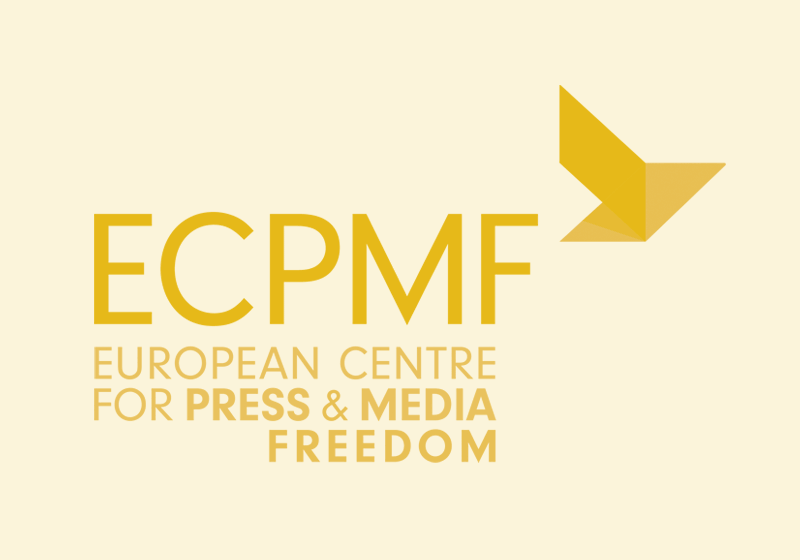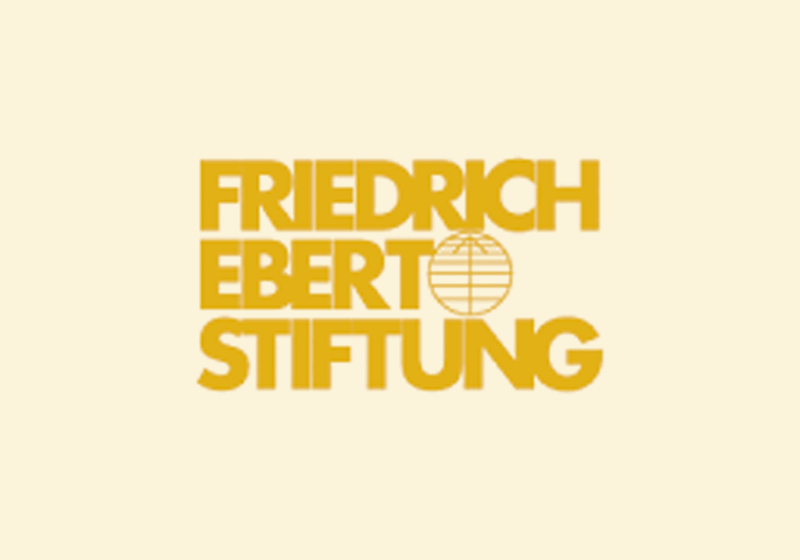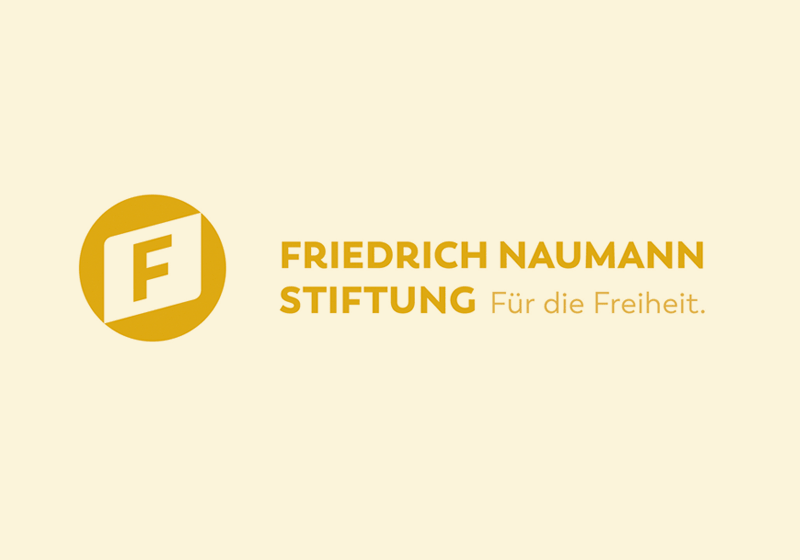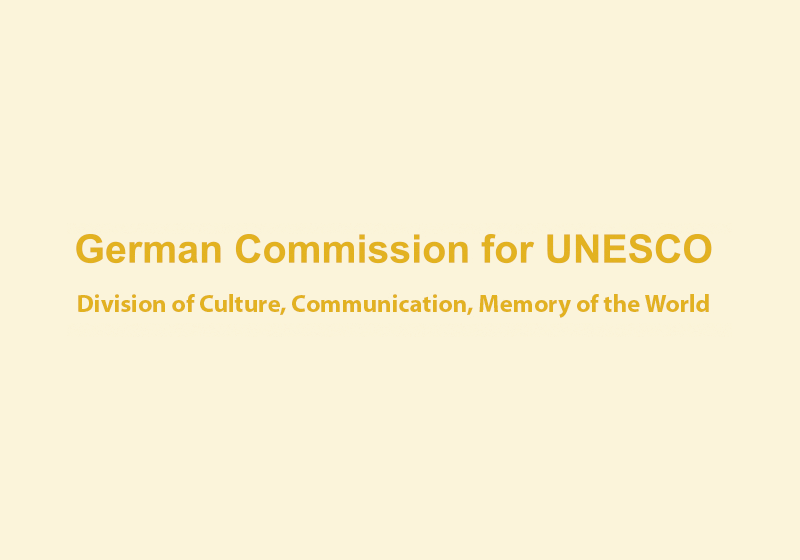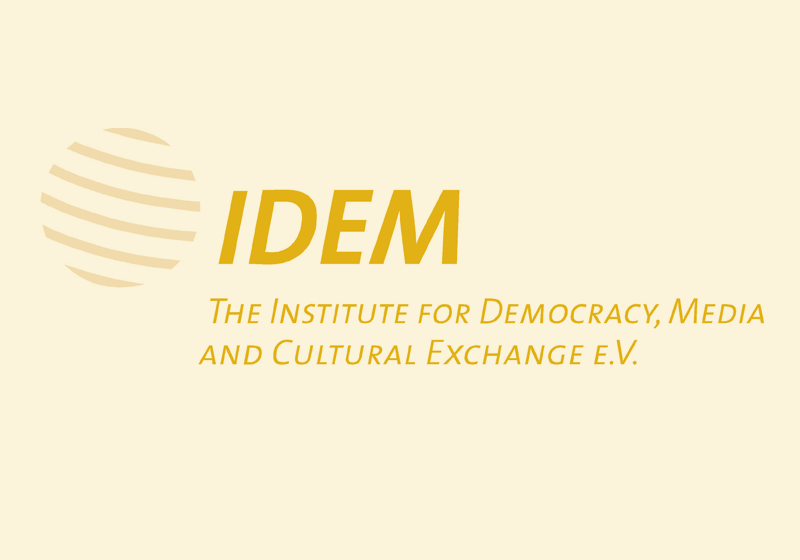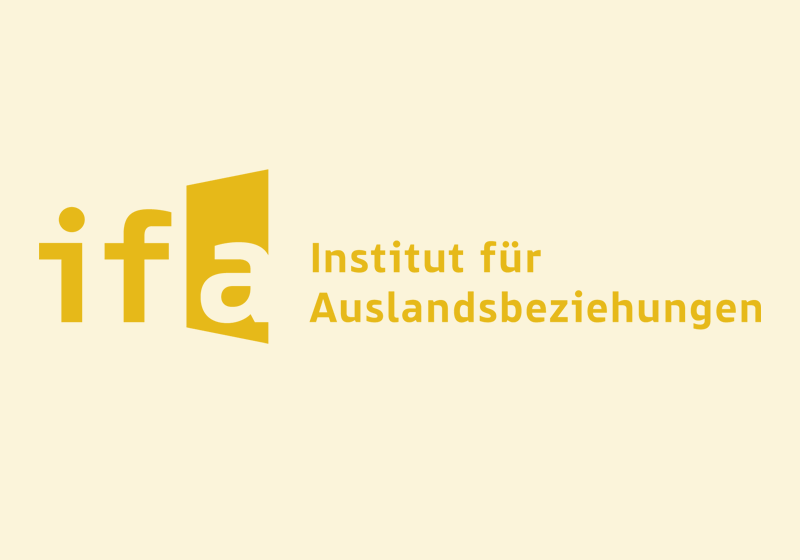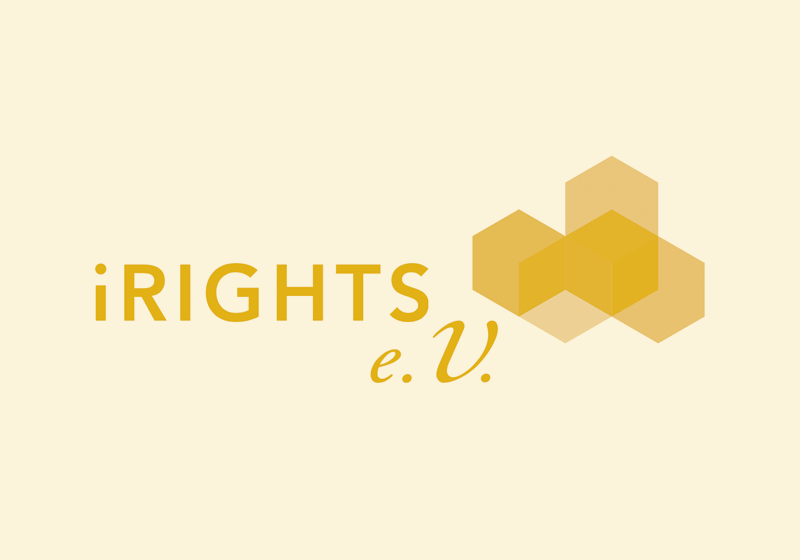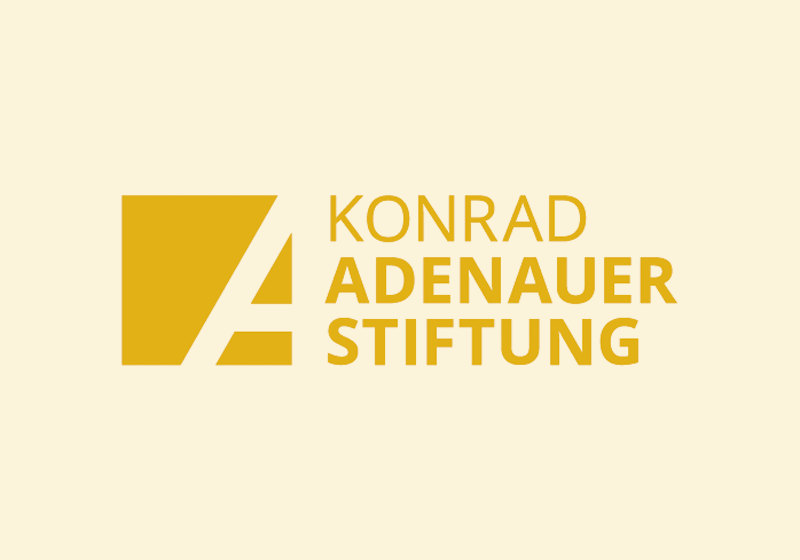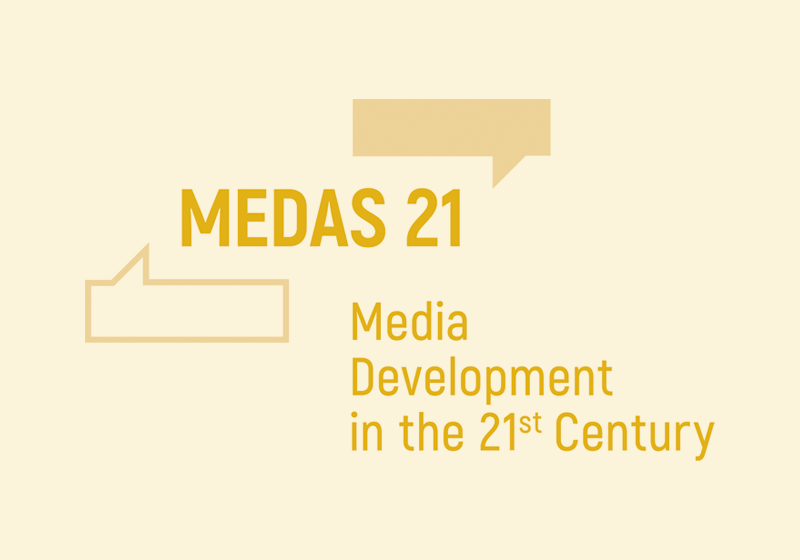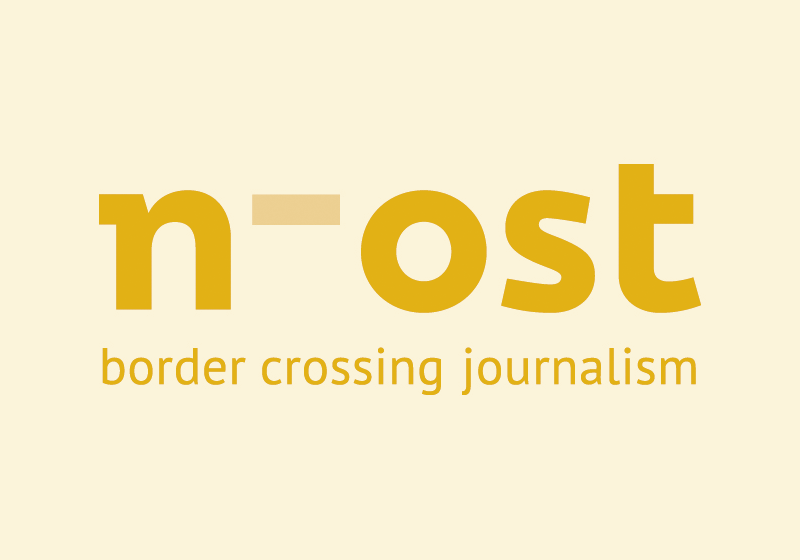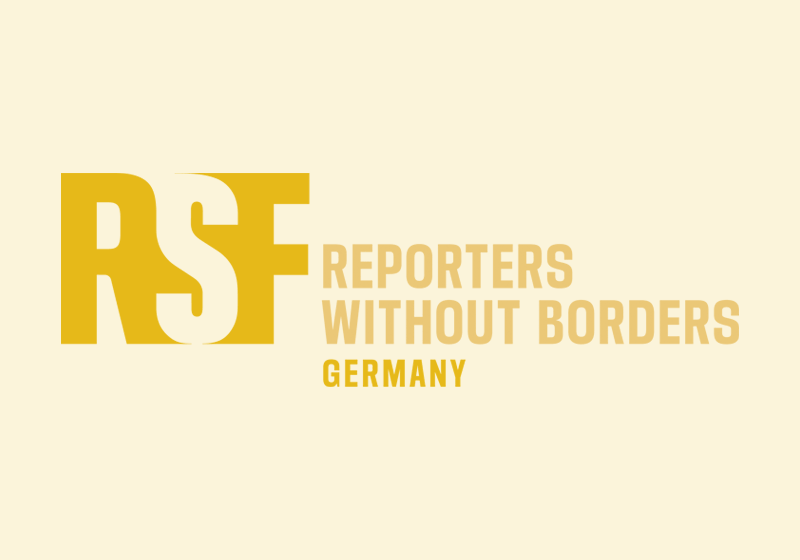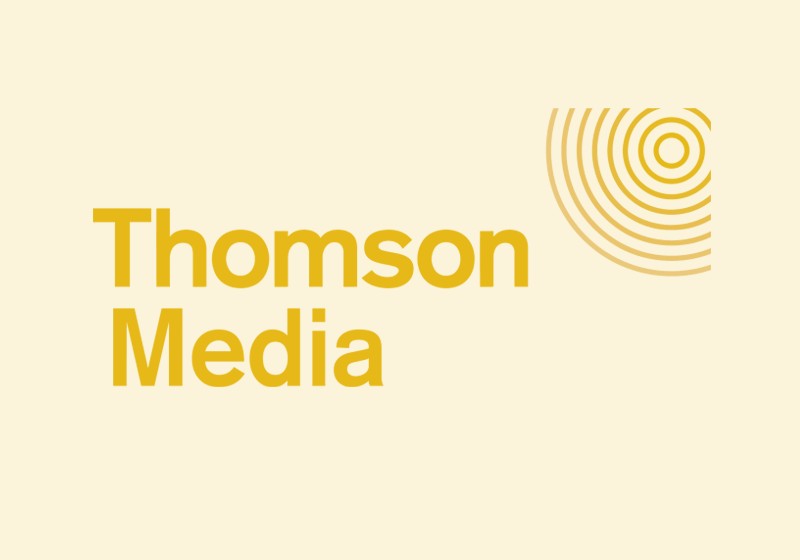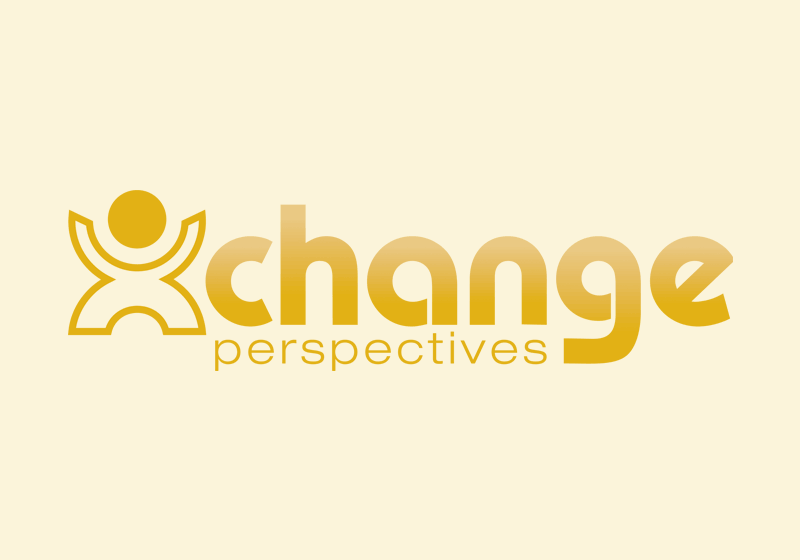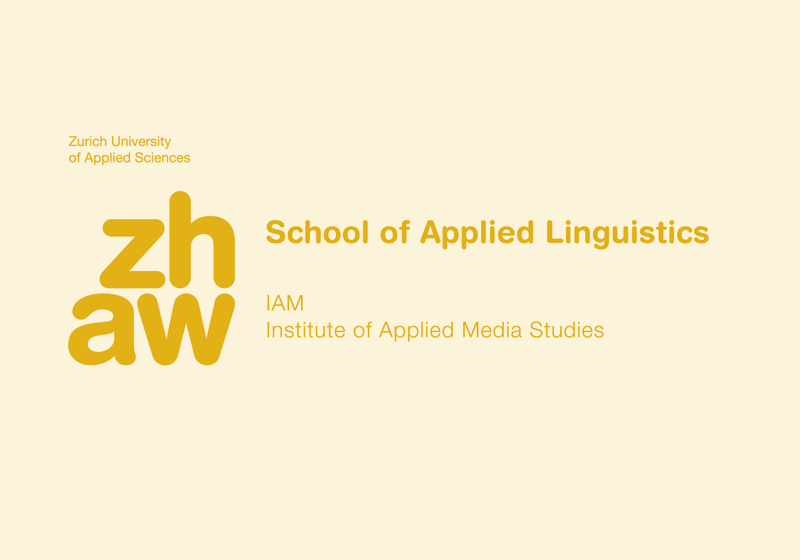Speakers 2025
sorted alphabetically – to be completed

Ouboulè Abalo is Fondation Hirondelle’s Representative in the Central African Republic since September 2021. He is a lawyer and graduate of the Ecole Nationale d’Administration du Bénin. He specialises in protection and human rights issues and has over 20 years of field experience in humanitarian and development contexts. He has coordinated numerous programmes (governance, health, justice, access to rights, child protection, sexual and gender-based violence, among others) in West and Central Africa. Before joining Fondation Hirondelle, Ouboulè Abalo held positions as national delegate, field coordinator, head of antenna, head of mission, country director within organisations such as Planète Urgence, RCN Justice & Démocratie, Action Contre la Faim, Médecins du Monde Belgium, Avocats Sans Frontières, etc. This career path has enabled him to acquire a variety of technical and managerial skills that have been strengthened over the years.
Zobaer Ahmed is an award-winning journalist with Deutsche Welle (DW) and a trainer with DW Akademie. He focuses on migration and displacement, exploring how conflict and climate intersect with human mobility. At DW, he produces projects on conflict analysis and climate issues, connecting Asian and global audiences. As a trainer, he specializes in conflict-sensitive reporting and helps journalists across Asia cover migration and displacement with greater depth and context. He holds master’s degrees in Psychology and Journalism.
Tammam 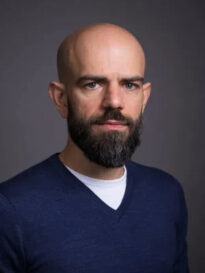 Aloudat, a Syrian-Swiss physician with over two decades of experience at the forefront of international humanitarian organisations, is a leading advocate for decolonising global health and advancing humanitarianism. He started his humanitarian career as a volunteer for the Syrian Red Crescent, and then with the International Federation of Red Cross and Red Crescent Societies (IFRC) in Iraq after the invasion in 2003. Over the last 20 years, he has worked in emergencies ranging from conflicts and forced displacement to disasters and disease outbreaks – from Darfur to the Indian Ocean tsunami to the Haiti earthquake. His most recent role was as President of MSF Netherlands and as a member of MSF’s International Board.
Aloudat, a Syrian-Swiss physician with over two decades of experience at the forefront of international humanitarian organisations, is a leading advocate for decolonising global health and advancing humanitarianism. He started his humanitarian career as a volunteer for the Syrian Red Crescent, and then with the International Federation of Red Cross and Red Crescent Societies (IFRC) in Iraq after the invasion in 2003. Over the last 20 years, he has worked in emergencies ranging from conflicts and forced displacement to disasters and disease outbreaks – from Darfur to the Indian Ocean tsunami to the Haiti earthquake. His most recent role was as President of MSF Netherlands and as a member of MSF’s International Board.
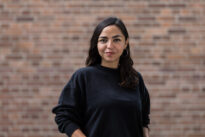
Nube Alvarez Sagahon is a journalist and Project Manager at Reporters Without Borders (RSF), where she coordinates since 2020 the Defending Voices Program for Mexico and Brazil. The program works to strengthen protection mechanisms, promote safer working environments for journalists, and combat impunity for crimes committed against media professionals.
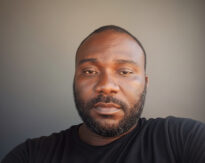
Samuel Asamoah, National Programmes Director at YMCA Ghana, leads youth empowerment initiatives in governance, film education, employability, and community development. Since returning to Ghana in 2015 after studying at the University of Passau, Germany, he has trained over 1,000 young people in film and media across West Africa, many of whom have built profitable careers and earned top awards. With nearly a decade of experience in media development, Samuel is committed to creating jobs for African youth through the media value chain. He has also organized numerous film screenings, particularly in rural Ghana, using films to spark dialogue on socio-economic issues and promote community action. These screenings attract nearly 5,000 community members each year, serving as a powerful medium for engagement and local transformation.

Hazrat Bahar (Dr. phil.) is a co-founder and board member of Afghanistan Media Support Organization (AMSO) and a postdoctoral research fellow at the Institute for Communication and Media Studies at Leipzig University. His research interests include the impact of (social) media, media systems, media in fragile states, media assistance, and political communication, with a particular focus on Afghanistan. Currently, he has been studying the Afghan media system for the past two decades. His research has been published in journals such as Media Asia, Cross-Culture Communication, and Global Media Journal-German Edition. Recent publication co-authored with Dr. Anja Wellenberg, 1) “Priorities Were Chosen by Donors” – A Critical Review of International Media Assistance in Afghanistan (2001-2021) by Global Media Journal (2025), and 2) China’s Public Diplomacy in Afghanistan: The Role of Media by CSEP (2025).
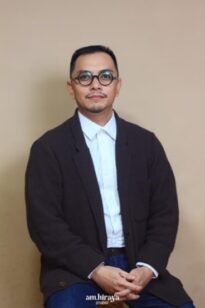
Mark Aljen Binocal is an academic specializing in Development Communication and the Sustainable Development Goals. He heads the Radio and Communications Unit at Davao Oriental State University and serves as Vice President for Davao of the Media Educators of Mindanao. Since 2020, he has been cooperating with IDEM on projects aimed at decolonizing news, placing Indigenous people at the centre of media creation, integrating Indigenous perspectives on climate change, and promoting peace and conflict-sensitive journalism and communication in Mindanao.
 Emma Cantera is a policy analyst at the OECD’s Development co-operation Directorate. In her more than 10 years with the OECD, she has worked on a wide range of public governance topics, including amongst others integrity and anti-corruption, public procurement, centre of government, and open government. Currently, within the DAC Network on Governance (GOVNET), she leads the work on media and the information environment, ODA to governance and digitalisation and governance. Ms. Cantera, a Colombian and French national, holds a bachelor’s degree on Economics and international affairs (Universidad Icesi, Colombia) and a master’s degree on International Relations and Political science (Sciences Po, France).
Emma Cantera is a policy analyst at the OECD’s Development co-operation Directorate. In her more than 10 years with the OECD, she has worked on a wide range of public governance topics, including amongst others integrity and anti-corruption, public procurement, centre of government, and open government. Currently, within the DAC Network on Governance (GOVNET), she leads the work on media and the information environment, ODA to governance and digitalisation and governance. Ms. Cantera, a Colombian and French national, holds a bachelor’s degree on Economics and international affairs (Universidad Icesi, Colombia) and a master’s degree on International Relations and Political science (Sciences Po, France).
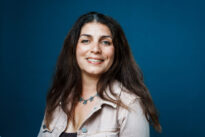
Lina Chawaf has over 30 years in media, giving voice to the voiceless especially women. She Worked across TV, radio, and print since 1992. She created hundreds of commercials and UNICEF clips, founded three Syrian radios stations for 20 years, and contributed to global outlets such as The Washington Post, The Globe and Mail, and The Boston Globe. As a media consultant with IMS, she helped establish radios in conflict zones and trained thousands of Arab journalists. She founded Rozana Radio in Paris and served as President of CMFE. She received the 2018 RSF Press Freedom Award. A 2024–25 Nieman Fellow. A visitor researcher at Harvard university. A visitor fellow at TUFTS university.

Clare Cook heads up journalism and media viability at International Media Support, one of the largest media development organisations globally. She’s an award-winning journalist with more than two decades’ experience in journalism and innovation. She’s currently leading a global initiative to Unlock Local Capital and coordinating multiple prototypes globally to unlock new funding financing and investment in journalism. She founded the Media Innovation Studio in the UK and pioneered many action research projects to find new ways of monetising journalism. Her doctoral thesis focuses on the sustainability of web natives. Clare has published extensively on journalism revenue models in fragile contexts in her role as senior lecturer at the University of Lancashire.
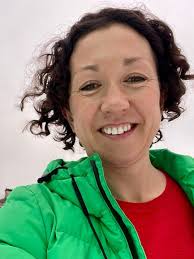 Sarah Cotton is the Membership and Delivery Lead at CDAC and has worked in the humanitarian sector for twelve years for the International Committee of the Red Cross. She is joining CDAC following a three year career break as the Membership and Delivery Lead primarily concerned with supporting the smooth and optimal relationship between Members and the Network. She is a policy expert in sexual violence in conflict and has spent her career communicating critical humanitarian concerns in London and to policy makers to effect change. Sarah has strong research and communications experience, as well as policy, and began her career as the Features Editor at Windsurf magazine. Sarah holds a Masters degree in International Relations, Post Grad Cert in Public Health from the London School of Hygiene and Tropical Medicine and a Bachelors in English Literature.
Sarah Cotton is the Membership and Delivery Lead at CDAC and has worked in the humanitarian sector for twelve years for the International Committee of the Red Cross. She is joining CDAC following a three year career break as the Membership and Delivery Lead primarily concerned with supporting the smooth and optimal relationship between Members and the Network. She is a policy expert in sexual violence in conflict and has spent her career communicating critical humanitarian concerns in London and to policy makers to effect change. Sarah has strong research and communications experience, as well as policy, and began her career as the Features Editor at Windsurf magazine. Sarah holds a Masters degree in International Relations, Post Grad Cert in Public Health from the London School of Hygiene and Tropical Medicine and a Bachelors in English Literature.
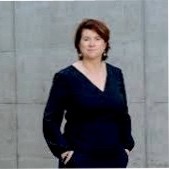 Charlotte Lindsey Curtet is an independent consultant specializing in digitalization, cyber policy, harmful information and communication. She is currently Author and Lead Editor of the World Disasters Report 2026 on Harmful Information for the International Federation of Red Cross and Red Crescent Societies (IFRC) which will be published in early 2026. She has also just completed a 1-year consultancy with the International Criminal Court in The Hague (on disinformation, and also on its outreach strategy and its internal communication) as well as with the Paris Peace Forum (where she co-wrote their Report on the AI-Cybersecurity Nexus). She also developed and wrote Terre des hommes digital transformation strategy. Charlotte is the co-CEO of Neutrality LLC, a tech startup. She is a Research Fellow (remote) at Berkeley Human Rights and a Subject Matter Expert at The Hague Centre for Strategic Studies, and also a civil society representative on the Swiss Government’s Steering Committee for the implementation of its national cyberstrategy. Charlotte is also a Trustee of Age International. Charlotte worked for 27 years for the International Committee of the Red Cross (ICRC) from 1993-2020, including for 10 years as Director of Communication and Information Management, and as Director of Digital Transformation and Data. She also worked for 3.5 years for the CyberPeace Institute as Chief Public Policy Officer and Chief Communication Officer (2021-2025).
Charlotte Lindsey Curtet is an independent consultant specializing in digitalization, cyber policy, harmful information and communication. She is currently Author and Lead Editor of the World Disasters Report 2026 on Harmful Information for the International Federation of Red Cross and Red Crescent Societies (IFRC) which will be published in early 2026. She has also just completed a 1-year consultancy with the International Criminal Court in The Hague (on disinformation, and also on its outreach strategy and its internal communication) as well as with the Paris Peace Forum (where she co-wrote their Report on the AI-Cybersecurity Nexus). She also developed and wrote Terre des hommes digital transformation strategy. Charlotte is the co-CEO of Neutrality LLC, a tech startup. She is a Research Fellow (remote) at Berkeley Human Rights and a Subject Matter Expert at The Hague Centre for Strategic Studies, and also a civil society representative on the Swiss Government’s Steering Committee for the implementation of its national cyberstrategy. Charlotte is also a Trustee of Age International. Charlotte worked for 27 years for the International Committee of the Red Cross (ICRC) from 1993-2020, including for 10 years as Director of Communication and Information Management, and as Director of Digital Transformation and Data. She also worked for 3.5 years for the CyberPeace Institute as Chief Public Policy Officer and Chief Communication Officer (2021-2025).
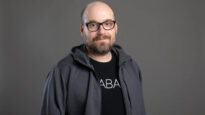
Peter Erdelyi is the founding director of the Center for Sustainable Media. He is a media executive from Budapest, Hungary, with over 25 years of experience in journalism and media management. He consults for the Media Development Investment Fund and teaches digital media strategy at ELTE University in Budapest. As a Fellow at the Reuters Institute at the University of Oxford, he researched digital audience revenue strategies in countries where the media environment is under pressure. Over the past two decades, he has been involved in launching and running various digital outlets in Hungary and has served on the Executive Board of the European Digital Media Observatory. He holds an MSc from the London School of Economics.
 Eva Garcke is a project manager in DW Akademie’s Displacement & Dialogue Asia program. Her work focuses on strengthening inclusive media landscapes by amplifying the voices of refugees and migrants across Asia. Through the program’s regional activities, Eva coordinates training for media professionals from across Asia in accurate, conflict-sensitive, and informative reporting about refugees and migrants. She also organizes regional conferences that bring together media practitioners, experts, and, wherever possible, representatives from refugee and migrant communities to share best practices and collaborate across borders. Eva holds a master’s degree in Advanced Migration Studies from the University of Copenhagen.
Eva Garcke is a project manager in DW Akademie’s Displacement & Dialogue Asia program. Her work focuses on strengthening inclusive media landscapes by amplifying the voices of refugees and migrants across Asia. Through the program’s regional activities, Eva coordinates training for media professionals from across Asia in accurate, conflict-sensitive, and informative reporting about refugees and migrants. She also organizes regional conferences that bring together media practitioners, experts, and, wherever possible, representatives from refugee and migrant communities to share best practices and collaborate across borders. Eva holds a master’s degree in Advanced Migration Studies from the University of Copenhagen.
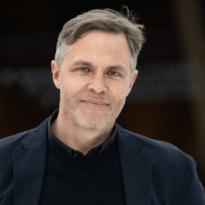
Hanno Gundert has been Managing Director at n-ost since 2010. He has worked for many years with NGOs and foundations, including Austausch.org, the Heinrich Böll Foundation, the Goethe-Institut, and the Foundation “Remembrance, Responsibility and Future” (EVZ). From 2001 to 2008, he lived in Russia, where he worked, among other positions, for the Delegation of the European Commission.
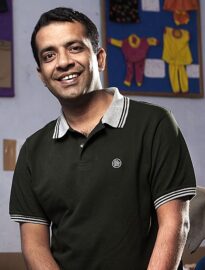
Anshu Gupta made the masses his prime focus by rewriting many rules of the development sector – not only as givers and receivers of material but also as the prime source of money, skills and services. He also structured imaginative solutions with urban surplus, to some basic but neglected needs outside the radar of the development sector and the civil society. Over the years as Goonj garnered major awards, including World Bank’s Development Marketplace award and NASA’s Launch award, Anshu also won recognition as an Ashoka and Schwab Fellow while he was also listed as one of India’s top social entrepreneurs by Forbes Magazine and Fast Company. Now Anshu is focused on global replication of his model to bridge the massive gap of social and economic inequities between urban prosperity and rural poverty. He speaks extensively on national and international forums to instigate urban and rural masses to engage more deeply with the issues faced by the society. His vision for Goonj, “Goonj doesn’t want to grow only as an organization; it wants to grow as an idea… where organizations and individuals across the world take up the work, learning from our experience and help reach the basics of life to people who need it urgently. Mindful of their dignity and their needs, not as charity.” Anshu is a foodie who loves photography, travel and writing. He lives in Delhi NCR with his wife Meenakshi also the Co-founder of Goonj and their daughter, Urvi.

Anneke Hudalla heads the fundraising department at n-ost and is also responsible for the Climate Journalism program. She has worked as a journalist in Germany (Sächsische Zeitung) and the Czech Republic (Respekt) and has served as a staff member for Members of the European Parliament and the German Bundestag. She holds a PhD in Political Science.

Maral Jekta is the Managing Director of the JX Fund – European Fund for Journalism in Exile. She has extensive experience in media development, civic education, and democracy promotion. Previously, she was Programme Lead and Senior Researcher at Tehran Bureau, an independent news organisation providing original reporting, commentary and analysis on Iran, and worked at ufuq.de on preventing violent extremism at the intersection of anti-Muslim racism and media literacy. Earlier, she served as a Project Manager at Media in Cooperation and Transition (MiCT), focusing on Iraq.
 Arpita Kanjilal is the Head of Research & Communications Division at the Digital Empowerment Foundation (DEF), leading work at the intersection of digital equity, meaningful inclusion, and social justice in India. A researcher and writer with a Ph.D. in Applied Linguistics, she works on the convergence of language, identity, and digital empowerment, promoting community-centred and people-first digital policy. At DEF, she leads initiatives on last-mile connectivity, online safety, data governance, and just digital transitions. She anchors the Just AI – Data and Algorithms for Communities Initiative, Digital Just Transition Taskforce, co-organises the Digital Citizen Summit, and contributes to global networks, including ARISE, UNESCO’s Global CSO and Academia Network and UNESCO’s Women for Ethical AI South Asia Chapter, shaping community-informed, inclusive, and sustainable digital futures.
Arpita Kanjilal is the Head of Research & Communications Division at the Digital Empowerment Foundation (DEF), leading work at the intersection of digital equity, meaningful inclusion, and social justice in India. A researcher and writer with a Ph.D. in Applied Linguistics, she works on the convergence of language, identity, and digital empowerment, promoting community-centred and people-first digital policy. At DEF, she leads initiatives on last-mile connectivity, online safety, data governance, and just digital transitions. She anchors the Just AI – Data and Algorithms for Communities Initiative, Digital Just Transition Taskforce, co-organises the Digital Citizen Summit, and contributes to global networks, including ARISE, UNESCO’s Global CSO and Academia Network and UNESCO’s Women for Ethical AI South Asia Chapter, shaping community-informed, inclusive, and sustainable digital futures.
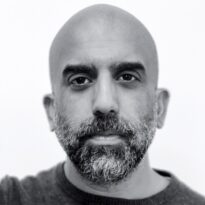 Amil Khan is former Reuters correspondent and founded Valent with a Covid loan after realising bots were spreading across social media and there was no way to detect or track them. Disinformation and online manipulation is being used against private and public sector organisations as well as political and humanitarian actors. Companies dealing with stock market manipulation, government bodies reacting to violent threats and humanitarians working in conflict zones rely on Valent’s AI tool, Ariadne. Amil has 20 years experience as a journalist and senior government advisor. He has briefed parliamentary inquiries and appears on news channels including BBC, Sky News, and Channel 4.
Amil Khan is former Reuters correspondent and founded Valent with a Covid loan after realising bots were spreading across social media and there was no way to detect or track them. Disinformation and online manipulation is being used against private and public sector organisations as well as political and humanitarian actors. Companies dealing with stock market manipulation, government bodies reacting to violent threats and humanitarians working in conflict zones rely on Valent’s AI tool, Ariadne. Amil has 20 years experience as a journalist and senior government advisor. He has briefed parliamentary inquiries and appears on news channels including BBC, Sky News, and Channel 4.
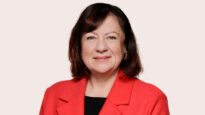
Bärbel Kofler (SPD) has served as Parliamentary State Secretary at the Federal Ministry for Economic Cooperation and Development (BMZ) since 2021. From 2016 to 2021, she was the Federal Government Commissioner for Human Rights Policy and Humanitarian Assistance at the Federal Foreign Office. She has been a member of the German Bundestag since 2004 and served as Chair of the German-Ukrainian Parliamentary Group from 2005 to 2013. From 1999 to 2001, she worked as a DAAD lecturer in Moscow. In her dissertation, she focused on language policy in the Soviet Union.
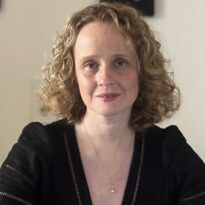 Roslyn Kratochvil-Moore is head of the Digital Sphere unit in the Policy and Learning department at Deutsche Welle Akademie. She is responsible for DW Akademie’s digital strategy, driving innovation, knowledge management and developing concepts, methodologies, toolkits and networking on thematic topics such as media and information literacy, artificial intelligence, information integrity, digital rights and constructive dialogue. Roslyn has over 20 years of experience in international development and humanitarian aid mainly focusing on education, climate adaptation and communication. She has lived and worked for many years in India, Kenya and Sudan. Roslyn has been working for DW Akademie specializing in media development since 2015 and is based in Bonn.
Roslyn Kratochvil-Moore is head of the Digital Sphere unit in the Policy and Learning department at Deutsche Welle Akademie. She is responsible for DW Akademie’s digital strategy, driving innovation, knowledge management and developing concepts, methodologies, toolkits and networking on thematic topics such as media and information literacy, artificial intelligence, information integrity, digital rights and constructive dialogue. Roslyn has over 20 years of experience in international development and humanitarian aid mainly focusing on education, climate adaptation and communication. She has lived and worked for many years in India, Kenya and Sudan. Roslyn has been working for DW Akademie specializing in media development since 2015 and is based in Bonn.

Andreas Lamm is a member of the ECPMF management team and has been part of the centre since its foundation in 2015. He is responsible for developing and implementing long-term strategy, project development and organisational management. In his daily work, he interacts with media professionals, political actors and academics to jointly develop protection mechanisms for media professionals in Europe. A particular focus of his work is on local journalism, which he closely monitors as a key area of activity for the ECPMF. Andreas Lamm holds a Master of Arts degree in Communication and Media Studies, American Studies and Psychology from the University of Leipzig.
 Geoff Loane is the Chair of the Board at CDAC and has extensive experience in humanitarian protection and assistance, serving as Head of Delegation for the ICRC in various countries including Kenya, Uganda, Serbia, Washington and the UK. His primary focus was liaison with governments and armed groups to negotiate and facilitate the delivery of protection and assistance. In his final role as Head of Education for the ICRC, he worked to ensure continuity of education during conflict. Geoff has spoken and written widely on humanitarian assistance, addressing both civilian and military audiences and exploring the unintended consequences of humanitarian assistance. He now works as a mediator with paramilitary groups in Northern Ireland.
Geoff Loane is the Chair of the Board at CDAC and has extensive experience in humanitarian protection and assistance, serving as Head of Delegation for the ICRC in various countries including Kenya, Uganda, Serbia, Washington and the UK. His primary focus was liaison with governments and armed groups to negotiate and facilitate the delivery of protection and assistance. In his final role as Head of Education for the ICRC, he worked to ensure continuity of education during conflict. Geoff has spoken and written widely on humanitarian assistance, addressing both civilian and military audiences and exploring the unintended consequences of humanitarian assistance. He now works as a mediator with paramilitary groups in Northern Ireland.
 Elke Löbel headed the task force on displacement and migration which was set up by the Federal Ministry for Economic Cooperation and Development in 2015 and which was merged with the Directorate she now heads in 2016. From 2011 to 2015, Elke Löbel was Head of the Division dealing with the Middle East (Jordan, Lebanon, Iraq, Syria, Palestinian territories, Yemen, Gulf States) and Egypt. Previously, she had been responsible for cooperation with political foundations and the churches, for budgetary affairs and for cooperation with South Asia (Sri Lanka and Nepal). Before joining the Federal Ministry for Economic Cooperation and Development in 2006, Elke Löbel managed the Exposure and Dialogue Programme (EDP) Bonn, where she was responsible for developing and implementing exposure and dialogue programmes in Asia, Africa and Latin America in collaboration with the German parliament, the BMZ, GIZ, KfW and faith-based aid organisations.
Elke Löbel headed the task force on displacement and migration which was set up by the Federal Ministry for Economic Cooperation and Development in 2015 and which was merged with the Directorate she now heads in 2016. From 2011 to 2015, Elke Löbel was Head of the Division dealing with the Middle East (Jordan, Lebanon, Iraq, Syria, Palestinian territories, Yemen, Gulf States) and Egypt. Previously, she had been responsible for cooperation with political foundations and the churches, for budgetary affairs and for cooperation with South Asia (Sri Lanka and Nepal). Before joining the Federal Ministry for Economic Cooperation and Development in 2006, Elke Löbel managed the Exposure and Dialogue Programme (EDP) Bonn, where she was responsible for developing and implementing exposure and dialogue programmes in Asia, Africa and Latin America in collaboration with the German parliament, the BMZ, GIZ, KfW and faith-based aid organisations.
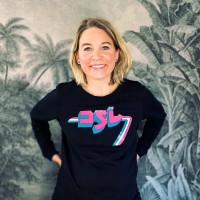 Suzy Madigan leads CDAC’s work on AI and participation in humanitarian action, as well as overseeing the SAFE AI project. She is the former Responsible AI Lead at CARE International, where she recently co-authored research with Accenture examining AI’s impact across 12 Global South countries, providing a blueprint for equitable collaboration.
Suzy Madigan leads CDAC’s work on AI and participation in humanitarian action, as well as overseeing the SAFE AI project. She is the former Responsible AI Lead at CARE International, where she recently co-authored research with Accenture examining AI’s impact across 12 Global South countries, providing a blueprint for equitable collaboration.
Suzy is a human rights specialist with UN and NGO field experience across nearly 20 emergency contexts, including Iraq, Ukraine, Gaza, and Haiti. She was recognised in the global 100 Brilliant Women in AI Ethics™ List 2025 for bridging tech companies, civil society, and policymakers.
 Varaidzo Faith Magodo-Matimba (she/her) is a researcher and lawyer working at the intersection of emerging technology policy, data governance, and human rights. She brings a community-centered, human rights lens to AI systems design and evaluation. Through her role as MERL Tech Initiative’s AI in Africa lead, she had pioneered the Made in Africa AI approaches to MERL landscape study—a first-of-its-kind resource centering African practitioner contexts, values, and communities in AI development. She chairs the UN Women A.C.T. Fund Civil Society Regional Network for East and Southern Africa and serves on the Board of Directors for Gender Rights in Tech (GRIT).
Varaidzo Faith Magodo-Matimba (she/her) is a researcher and lawyer working at the intersection of emerging technology policy, data governance, and human rights. She brings a community-centered, human rights lens to AI systems design and evaluation. Through her role as MERL Tech Initiative’s AI in Africa lead, she had pioneered the Made in Africa AI approaches to MERL landscape study—a first-of-its-kind resource centering African practitioner contexts, values, and communities in AI development. She chairs the UN Women A.C.T. Fund Civil Society Regional Network for East and Southern Africa and serves on the Board of Directors for Gender Rights in Tech (GRIT).
 Altynai Mambetova is a data scientist and founder who combines textual data with technology to create impactful solutions. Currently, she is building a collaboration platform for academia at PeerMatch. Her approach blends technical expertise with a passion for storytelling and art, bridging data science and journalism. Altynai also leads the nonprofit School of Data in Kyrgyzstan, which was established with support from IDEM – a longstanding partner ever since.
Altynai Mambetova is a data scientist and founder who combines textual data with technology to create impactful solutions. Currently, she is building a collaboration platform for academia at PeerMatch. Her approach blends technical expertise with a passion for storytelling and art, bridging data science and journalism. Altynai also leads the nonprofit School of Data in Kyrgyzstan, which was established with support from IDEM – a longstanding partner ever since.

Gilles Marchand recently founded “Legitima”, a consultancy specializing in legitimacy (www.legitima.ch), which works in particular with the EBU (European Broadcasting Union) on issues related to the defense of public service media. He is also Director of the “Media Philanthropy Initiative” at the University of Geneva (www.unige.ch). Gilles Marchand served as Director General of SRG SSR (www.srgssr.ch), the Swiss public broadcasting service, from 2017 until the end of 2024. Previously, he was Director of TSR (Télévision Suisse Romande) from 2001 to 2009. In 2010, he became head of RTS (Radio Télévision Suisse) after merging French-speaking Swiss radio and television into a single entity (www.rts.ch). Gilles Marchand has also held various positions on boards and within institutions such as TV5 Monde, the European Broadcasting Union (EBU), and the University of Geneva. He also served on the Swiss Federal Media Commission from 2013 to 2017. He began his professional career in 1985 in book publishing, then joined La Tribune de Genève, and later the Ringier Romandie press group in 1992, where he became Managing Director from 1998 to 2001. From 1990 to 2000, Gilles Marchand was very active within the World Association of Newspapers (WAN) in Paris, where he managed numerous training programs for independent publishers in Africa and Eastern Europe. Gilles Marchand was born in Lausanne in 1962. He holds a Master’s degree in Sociology from the University of Geneva.

Michael Markovitz is an adjunct faculty member at the Gordon Institute of Business Science (GIBS) in Johannesburg and Director of the GIBS Media Leadership Think Tank (MLTT) — an independent research and advocacy platform advancing solutions for African media in support of democracy. As Faculty Lead, he co-designed and launched the inaugural Executive Programme in Media Leadership at GIBS in 2025. In the same year, the MLTT co-hosted CTRL+J Africa at GIBS as part of a tri-continental conference series with partners in Brazil and Indonesia. Recognised as one of South Africa’s leading experts on media and tech policy, Michael was named among the top 50 alumni of Rhodes University’s School of Journalism and Media Studies in its first 50 years. In 2023, he convened a landmark global conference at GIBS that adopted Big Tech and Journalism: Principles for Fair Compensation, endorsed by 101 signatories from 28 countries. He has held senior roles in both the public and private sectors, including a five-year term as a board member of the South African Broadcasting Corporation (SABC).
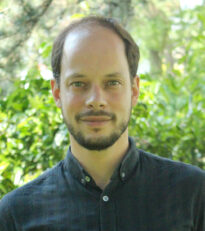 Sacha Meuter is Head of Research and Policy at Fondation Hirondelle, a Swiss non-profit organization that supports local media and journalists in challenging media environments, including in the Sahel and Central Africa. Sacha Meuter has been researching and working with media in fragile contexts for almost 20 years. At Fondation Hirondelle, he develops partnerships with academic actors, think tanks and international organizations to design and implement studies to understand the condition and impact of local media, to elaborate online and offline media monitoring tools and to improve media support policies. His work includes regular field missions and participation to international conferences. Sacha Meuter is also a board member of The New Humanitarian.
Sacha Meuter is Head of Research and Policy at Fondation Hirondelle, a Swiss non-profit organization that supports local media and journalists in challenging media environments, including in the Sahel and Central Africa. Sacha Meuter has been researching and working with media in fragile contexts for almost 20 years. At Fondation Hirondelle, he develops partnerships with academic actors, think tanks and international organizations to design and implement studies to understand the condition and impact of local media, to elaborate online and offline media monitoring tools and to improve media support policies. His work includes regular field missions and participation to international conferences. Sacha Meuter is also a board member of The New Humanitarian.
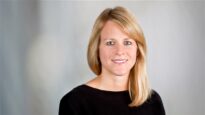 Laura Moore has 15 years of experience in the field of international media development, with a focus on media viability and assessing media systems. She’s the co-author of the “Media Viability Manifesto”, the first ever sector-wide framework to tackle the economic crisis facing journalism. In her book “Measuring Global Media Freedom” she analyzes existing press freedom rankings and suggests an improved tool for evaluating the situation of media around the world. Laura has worked as a journalist for several German media outlets and was a newspaper reporter in Mexico.
Laura Moore has 15 years of experience in the field of international media development, with a focus on media viability and assessing media systems. She’s the co-author of the “Media Viability Manifesto”, the first ever sector-wide framework to tackle the economic crisis facing journalism. In her book “Measuring Global Media Freedom” she analyzes existing press freedom rankings and suggests an improved tool for evaluating the situation of media around the world. Laura has worked as a journalist for several German media outlets and was a newspaper reporter in Mexico.
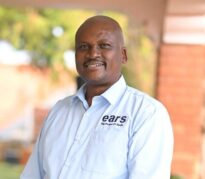 Douglas Mutumba is a founder and Managing Director of East African Radio Services (EARS) – an agency that iy EARS is aggregating independent radio stations into national and regional packages thus providing simplified access to large international corporates as advertising clients. Before joining EARS, Douglas worked with the Uganda Radio Network for 8 years as Network Manager in charge for client relations with the numerous members of the URN. With over 30 years of experience in media development in Uganda and the region, Douglas has a strong background in media strategy, development and implementation of countrywide impactful communication projects. Douglas is passionate about driving growth of the radio industry and data-driven decision-making.
Douglas Mutumba is a founder and Managing Director of East African Radio Services (EARS) – an agency that iy EARS is aggregating independent radio stations into national and regional packages thus providing simplified access to large international corporates as advertising clients. Before joining EARS, Douglas worked with the Uganda Radio Network for 8 years as Network Manager in charge for client relations with the numerous members of the URN. With over 30 years of experience in media development in Uganda and the region, Douglas has a strong background in media strategy, development and implementation of countrywide impactful communication projects. Douglas is passionate about driving growth of the radio industry and data-driven decision-making.
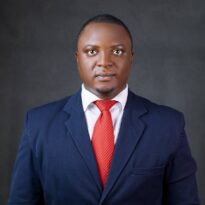
Ngala Desmond Ngala is a leading MIL trainer, programs director, peace building advocate and university lecturer with over a decade of experience across academia, civil society, counter narratives, and international platforms. His work bridges media literacy, conflict resolution, and digital rights, empowering communities to counter misinformation and hate speech in Cameroon and the Central Africa sub region. As the Project Manager at #defyhatenow Cameroon he designs transformative programs on mitigating hate speech and violent extremism and leads national campaigns on responsible media use. Dr. Ngala has trained hundreds of journalists, activists, influencers, and youth leaders through initiatives like #AFFCameroon and Media4Peace, and has spoken at UNESCO, META, and national commissions on digital safety and civic resilience. His PhD research explores new media’s role in fuelling hate speech in pluralistic societies. With a commitment to ethical advocacy and inclusive development, Dr. Ngala continues to shape Africa’s media landscape through education, strategic partnerships, and community-driven solutions.
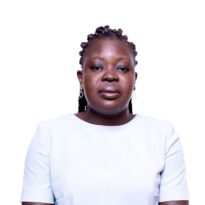
Yine Yenki Nyika is a professional with a decade of practical experience in leading innovative digital media inclusion efforts. She is co-founder of the GoGirls ICT Initiative and Network Coordinator for #ASKnet, a cross-border network of thirteen South Sudanese media initiatives in South Sudan and refugee settlements in Uganda, striving to foster a sustainable open society and media ecosystem. She is recognized as the youngest person ever appointed to a national board, serving on the National Communication Authority of South-Sudan, as well as being a board trustee for the University Innovation Pod (#Unipod) at the University of Juba. Additionally, she is a valued member of several organizations, including the Global Innovation Gathering (GIG) and the Pan-African Policy Taskforce.
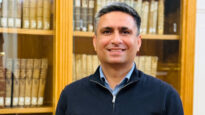
Hamid Obaidi is a researcher at Leipzig University, where he focuses on journalistic culture in conflict zones. He is also the Founder and executive director of the Afghanistan Media Support Organisation (AMSO), advocating for press freedom and the safety of journalists. With a postgraduate degree in journalism and communication from Shanghai Jiao Tong University, Hamid has over a decade of experience in journalism, academia, and media relations. He worked as an assistant professor of journalism at Kabul University for more than ten academic years. Notably, some of his works have been published in international journals.
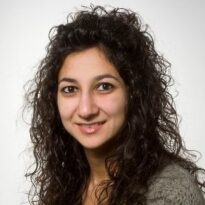 Pinar Okur is the Head of Strategic Partnerships and Growth at Upinion. At Upinion she works to enhance inclusive digital engagement worldwide. Pinar currently resides with her family in New Zealand, as an Edmund Hillary Fellow, focusing on climate in the Asia-Pacific region. Previously she worked as the international programme lead and researcher for the ‘Forced Migration & Sexual and Reproductive Health and Rights (SRHR)’ programme at Rutgers, which she set up with colleagues.
Pinar Okur is the Head of Strategic Partnerships and Growth at Upinion. At Upinion she works to enhance inclusive digital engagement worldwide. Pinar currently resides with her family in New Zealand, as an Edmund Hillary Fellow, focusing on climate in the Asia-Pacific region. Previously she worked as the international programme lead and researcher for the ‘Forced Migration & Sexual and Reproductive Health and Rights (SRHR)’ programme at Rutgers, which she set up with colleagues.
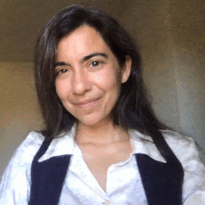 Malka Older is a writer, sociologist, and aid worker. She is the Executive Director of Global Voices, a community of writers, editors, and translators providing community journalism from all over the world and advocating for indigenous and minority languages, media literacy, digital rights, and online freedom of expression. She is also a Faculty Associate at Arizona State University’s School for the Future of Innovation in Society, where she teaches on the humanitarian-development spectrum and on predictive fictions and hosts the Science Fiction Sparkle Salon, and an Associate Researcher at the Centre de Sociologie des Organisations. She has spoken at venues such as SXSW, the Personal Democracy Forum, the FWD50 conference, and the Hamburg International Summer Festival on topics including democracy, data, narrative disorder, and speculative resistance.
Malka Older is a writer, sociologist, and aid worker. She is the Executive Director of Global Voices, a community of writers, editors, and translators providing community journalism from all over the world and advocating for indigenous and minority languages, media literacy, digital rights, and online freedom of expression. She is also a Faculty Associate at Arizona State University’s School for the Future of Innovation in Society, where she teaches on the humanitarian-development spectrum and on predictive fictions and hosts the Science Fiction Sparkle Salon, and an Associate Researcher at the Centre de Sociologie des Organisations. She has spoken at venues such as SXSW, the Personal Democracy Forum, the FWD50 conference, and the Hamburg International Summer Festival on topics including democracy, data, narrative disorder, and speculative resistance.
 Churchill Otieno is a distinguished journalist and media leader with over 23 years of experience in digital media, newsroom leadership, and media innovation. He serves as President of The Africa Editors Forum (TAEF) and Executive Director of the Eastern Africa Editors Society (EAES). A champion of media innovation, Otieno is at the forefront of efforts to develop sustainable media business models that preserve public interest journalism. He also chairs the Steering Council of the Africa Media Convention and serves on the advisory board of the Leadership program at the University of Central Lancashire, UK. A former President of the Kenya Editors’ Guild and Managing Editor for Digital at Nation Media Group, Otieno has led transformative digital initiatives in the media sector, focusing on regulatory frameworks and the digital transition of newsrooms. His influence extends to academia where he has conducted several media-related studies and served as visiting lecturer at the Aga Khan University’s Graduate School of Media and Communications and Moi University. Churchill Otieno holds an MBA from Strathmore University, an M.Sc. and B.Sc. in Communication Studies from Moi University, and a Diploma in Journalism from Nyegezi. He has been a visiting scholar at New York University and holds a Postgraduate Certificate in Journalism Innovation and Leadership from the University of Central Lancashire, UK.
Churchill Otieno is a distinguished journalist and media leader with over 23 years of experience in digital media, newsroom leadership, and media innovation. He serves as President of The Africa Editors Forum (TAEF) and Executive Director of the Eastern Africa Editors Society (EAES). A champion of media innovation, Otieno is at the forefront of efforts to develop sustainable media business models that preserve public interest journalism. He also chairs the Steering Council of the Africa Media Convention and serves on the advisory board of the Leadership program at the University of Central Lancashire, UK. A former President of the Kenya Editors’ Guild and Managing Editor for Digital at Nation Media Group, Otieno has led transformative digital initiatives in the media sector, focusing on regulatory frameworks and the digital transition of newsrooms. His influence extends to academia where he has conducted several media-related studies and served as visiting lecturer at the Aga Khan University’s Graduate School of Media and Communications and Moi University. Churchill Otieno holds an MBA from Strathmore University, an M.Sc. and B.Sc. in Communication Studies from Moi University, and a Diploma in Journalism from Nyegezi. He has been a visiting scholar at New York University and holds a Postgraduate Certificate in Journalism Innovation and Leadership from the University of Central Lancashire, UK.
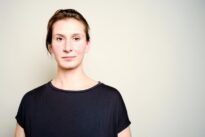
Melanie Radue is fellow to the Chair of Development Policy at the University of Passau and works on topics of international communication with a specification in de-westernization. She completed her doctorate at the Friedrich-Alexander University on the topic of “Media Systems in Non-Western Contexts. Freedom of the Media in Southeast Asia”. Accordingly, her research interest is in media freedom, comparative media systems and social movements. Melanie focuses on “cosmopolitical communication science” and devotes herself to the question of how to decolonize minds and actions in academia and in the aid industry. Beyond Melanie´s academic work she is engaged in the design, implementation, and management of media assistance projects.
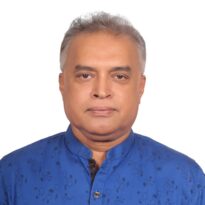
Mohammed Arifur Rahman is the Founder and Chief Executive of Young Power in Social Action (YPSA), a non-profit organization established in 1985 during the UN International Youth Year. YPSA works for sustainable development and holds Special Consultative Status with UN ECOSOC. Dr. Rahman has extensive experience in development leadership, policy advocacy, humanitarian response, social innovation and inclusion. He is the Chief Organizer of Radio Sagor Giri FM 99.2, the first government-approved community radio station in coastal Chattogram, and the Chief Editor of “Social Change,” an ISSN-registered development journal.
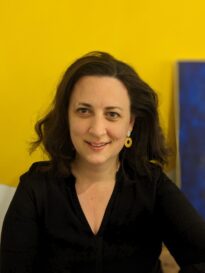 Victoire Rio is a tech policy and accountability expert and the executive director of WHAT TO FIX. She has been pioneering research into social media monetization since 2019, and brings a decade of experience holding tech companies accountable, most notably in Myanmar, where she co-founded and led the Myanmar Tech Accountability Network.
Victoire Rio is a tech policy and accountability expert and the executive director of WHAT TO FIX. She has been pioneering research into social media monetization since 2019, and brings a decade of experience holding tech companies accountable, most notably in Myanmar, where she co-founded and led the Myanmar Tech Accountability Network.

Ana Cristina Ruelas is a Senior Programme Specialist at UNESCO focusing on the freedom of expression in the digital environment. Before coming to UNESCO she was the Regional Director for the Freedom of Expression organization ARTICLE 19 Mexico and Central America.
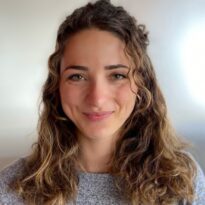 Ila Schoop Rutten is the Information Integrity Lead at the CDAC Network. She facilitates a monthly online Community of Practice, bringing together representatives from CDAC’s diverse members—including UN agencies, media development organizations, and humanitarian NGOs/INGOs—to exchange insights, discuss emerging developments, and explore the latest research and case studies on harmful information in crisis settings.
Ila Schoop Rutten is the Information Integrity Lead at the CDAC Network. She facilitates a monthly online Community of Practice, bringing together representatives from CDAC’s diverse members—including UN agencies, media development organizations, and humanitarian NGOs/INGOs—to exchange insights, discuss emerging developments, and explore the latest research and case studies on harmful information in crisis settings.
 Natascha Schwanke is the Deputy Director of DW Akademie, where she is responsible for international media development. In more than 70 countries, DW Akademie is engaged in projects promoting media freedom and freedom of expression. Natascha Schwanke studied journalism at the University of Dortmund, completed a traineeship at Westdeutscher Rundfunk (WDR), and subsequently worked for many years as an editor and reporter, primarily for radio and TV formats of public service broadcasters.
Natascha Schwanke is the Deputy Director of DW Akademie, where she is responsible for international media development. In more than 70 countries, DW Akademie is engaged in projects promoting media freedom and freedom of expression. Natascha Schwanke studied journalism at the University of Dortmund, completed a traineeship at Westdeutscher Rundfunk (WDR), and subsequently worked for many years as an editor and reporter, primarily for radio and TV formats of public service broadcasters.
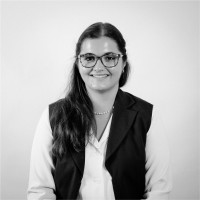 Clara de Solages is a research analyst working with Insecurity Insight since April 2024. Clara has worked as an analyst across the fields of security, risk and intelligence. She holds a Masters in Security Studies from the Georgetown University Walsh School of Foreign Service.
Clara de Solages is a research analyst working with Insecurity Insight since April 2024. Clara has worked as an analyst across the fields of security, risk and intelligence. She holds a Masters in Security Studies from the Georgetown University Walsh School of Foreign Service.
 Ralitsa Stoycheva is a Research Associate and Project Manager at the Konrad-Adenauer-Stiftung Media Programme South East Europe. Her main topics of interest are digitalisation, social networks and their influence on society as well as on the foreign malign influence in the region. She obtained a Bachelor’s degree in Political Science at Freie Universität Berlin and Master’s degree in Political Economy of European Integration at the Berlin School of Economics and Law. Currently, she is a PhD candidate at Sofia University “St. Kliment Ohridski”.
Ralitsa Stoycheva is a Research Associate and Project Manager at the Konrad-Adenauer-Stiftung Media Programme South East Europe. Her main topics of interest are digitalisation, social networks and their influence on society as well as on the foreign malign influence in the region. She obtained a Bachelor’s degree in Political Science at Freie Universität Berlin and Master’s degree in Political Economy of European Integration at the Berlin School of Economics and Law. Currently, she is a PhD candidate at Sofia University “St. Kliment Ohridski”.

Leticia Kleim is the Legal Coordinator of Abraji, where she leads projects such as the Legal Protection Program for Journalists and the Judicial Harassment Monitor. A lawyer and geographer trained at the University of São Paulo, she has previously worked at institutions committed to advancing human rights and guarantees.
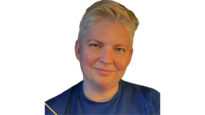
Maryia Sadouskaya-Komlach is a Global Engagement Strategist at Free Press Unlimited in Amsterdam, with a thematic focus, among others, on media viability and media in exile, particularly in Eastern Europe. Her work centers on building cross-border coalitions and strategic partnerships, as well as mobilizing resources and coordinating international support for media. She has more than 20 years of experience in journalism and media NGOs.
 Carsten von Nahmen is DW Akademie’s Managing Director. He studied Journalism and History in Dortmund, and joined Deutsche Welle in 1992 as a trainee. Afterwards, he worked as a freelance reporter and political correspondent for DW and other media. In 2004, he joined DW Akademie, where he was responsible for media development in various regions before returning to Deutsche Welle as Head of News and Deputy Editor-in-Chief in 2014, and as senior correspondent in Washington in 2017.
Carsten von Nahmen is DW Akademie’s Managing Director. He studied Journalism and History in Dortmund, and joined Deutsche Welle in 1992 as a trainee. Afterwards, he worked as a freelance reporter and political correspondent for DW and other media. In 2004, he joined DW Akademie, where he was responsible for media development in various regions before returning to Deutsche Welle as Head of News and Deputy Editor-in-Chief in 2014, and as senior correspondent in Washington in 2017.
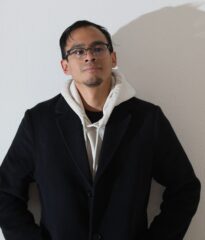 Víctor Martínez Villa is the Legal Coordinator at Propuesta Cívica, where he leads legal strategies and accompanies cases of serious human rights violations against journalists and human rights defenders in Mexico. A lawyer from the National Autonomous University of Mexico (UNAM), with a postgraduate diploma in Evidentiary Reasoning from the University of Girona, Spain, he has worked with human rights organizations since 2013. He also teaches at the Legal Defense Clinic of the Universidad Iberoamericana in Mexico City.
Víctor Martínez Villa is the Legal Coordinator at Propuesta Cívica, where he leads legal strategies and accompanies cases of serious human rights violations against journalists and human rights defenders in Mexico. A lawyer from the National Autonomous University of Mexico (UNAM), with a postgraduate diploma in Evidentiary Reasoning from the University of Girona, Spain, he has worked with human rights organizations since 2013. He also teaches at the Legal Defense Clinic of the Universidad Iberoamericana in Mexico City.
 Shruti Viswanathan is currently a consultant for CDAC (Communicating with Disaster Affected Communities). Shruti is an independent consultant with over thirteen years’ of experience working on the intersection of governance, service delivery, and the use of technology. Shruti brings a strong commitment to approaches that support co-production of knowledge and action with local actors. She has served as Technical Lead/Project Director on global projects on equitable digital inclusion and data governance studies, combining global perspectives with local knowledge and contextual analysis. Previously an Associate Director at Athena Infonomics, Shruti seeks to use technology and data to build just, inclusive societies.
Shruti Viswanathan is currently a consultant for CDAC (Communicating with Disaster Affected Communities). Shruti is an independent consultant with over thirteen years’ of experience working on the intersection of governance, service delivery, and the use of technology. Shruti brings a strong commitment to approaches that support co-production of knowledge and action with local actors. She has served as Technical Lead/Project Director on global projects on equitable digital inclusion and data governance studies, combining global perspectives with local knowledge and contextual analysis. Previously an Associate Director at Athena Infonomics, Shruti seeks to use technology and data to build just, inclusive societies.

Ivana Bjelic Vucinic is the Director of the International Media Policy and Advisory Centre (IMPACT) at the Global Forum for Media Development (GFMD), where she leads programmes on evidence-based media policy, research, and strategic initiatives. IMPACT brings together media support organisations, donors, academics, and governance experts to improve data-driven decision-making across the sector. Ivana has led projects on data collection, mapping, research, and monitoring to strengthen journalism and media support worldwide. Previously, she managed media law and associations programs at IREX Serbia and led projects at Media Centre Belgrade. She holds a BA in Journalism and an MA in Communication Studies.
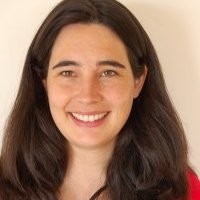 Christina Wille is director and a founding member of Insecurity Insight. Christina oversees the organization of all Insecurity Insight and Aid in Danger projects. Her work is on the use of data for improving and developing human security, with a particular focus on the monitoring and evaluation of humanitarian information generation. Christina holds a MPhil in international relations and European studies from the University of Cambridge and a BA in history from the University of Durham.
Christina Wille is director and a founding member of Insecurity Insight. Christina oversees the organization of all Insecurity Insight and Aid in Danger projects. Her work is on the use of data for improving and developing human security, with a particular focus on the monitoring and evaluation of humanitarian information generation. Christina holds a MPhil in international relations and European studies from the University of Cambridge and a BA in history from the University of Durham.
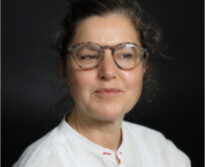
Anja Wollenberg (Dr. phil.) is Head of Research at MiCT, a Berlin-based media assistance organization primarily active in the Middle East and North Africa but also in West Africa, East Africa, Eastern Europe and South-Central Asia. Her research focuses on media pluralism in fragile contexts and the role of media in conflict and conflict prevention. She has published extensively on media development in Iraq and Libya, particularly in relation to conflict dynamics such as polarization, hate speech, and media partisanship in these countries. Currently Anja is conducting a media system analysis in Syria. Anja Wollenberg is a co-founder and shareholder of MiCT. She also teaches in the Department of Media Studies at the University of Erfurt.
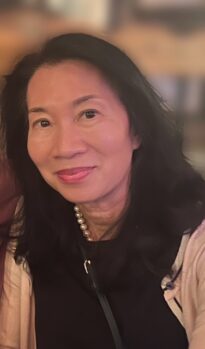
Marcia K. Wong has over thirty years of diplomatic, development and humanitarian experience with the US government and international organizations, most recently as a Deputy Assistant Administrator in USAID’s Bureau for Humanitarian Assistance. Before rejoining the US government in 2022, she led a team to advance humanitarian diplomacy and partnerships as the Head of Policy of the International Committee of the Red Cross/Regional delegation to the US and Canada, 2015-2022. Other complex crisis positions at the State Department included establishing the Bureau for Conflict and Stability Operations, serving as Senior Coordinator for complex crises in the Office of Foreign Assistance, and as Associate Dean for Stability Operations training; at USAID, she served as a senior policy advisor in the former Bureau for Democracy, Humanitarian Assistance, and Conflict. Her diplomatic career also focused on energy, security and economic sector reforms, with overseas tours in Russia, Northern Macedonia (and support to Kosovo) and Japan, with extensive travel in Africa, Middle East and Asia while serving on the executive staff of three Secretaries of State. She has degrees in International Relations and Political Science from Brown University and was a MIT Seminar XXI Fellow.
Moderation

Edith Kimani is a renowned Kenyan journalist and television presenter, celebrated for her compelling storytelling, sharp news judgment, and engaging on-screen presence. She currently hosts Deutsche Welle’s award-winning African flagship programme The 77 Percent, where she amplifies the voices, challenges, and aspirations of Africa’s youth.
Before joining DW, Edith was a news anchor at Kenya Television Network (KTN), where she gained recognition for her human-interest reporting across the country. She is also an experienced moderator and global media voice, having led high-level conversations at forums including the World Economic Forum, the G20 Summit, the WTO, and the Africa-EU Energy Partnership Summit.
A passionate climate advocate, Edith has reported on global warming from the Arctic and continues to champion environmental awareness. She is a CNN Journalism Fellow and was named among Africa’s Top 100 Most Influential Young People. In 2025, she was selected as a Yale Emerging Climate Leaders Fellow, further cementing her role as a powerful voice shaping Africa’s narrative on the global stage.


